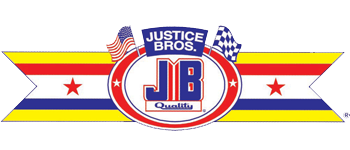
AUTONET TV
Archive for February 2022STRAIGHT TALK ABOUT STEERING (Loose Steering)Posted February 27, 2022 8:19 AMPerhaps you've heard someone use the term "loose steering." And it's pretty much what it sounds like. You turn the steering wheel and the vehicle's wheels don't seem to go exactly where you thought you were pointing them. You have to constantly make steering adjustments. Loose steering is sloppy steering, and it can be a safety hazard. You need to be able to control your vehicle with pretty much the same precision as the way it was when it came off the assembly line. If the steering in your vehicle is starting to feel loose and sloppy, there may be some significant suspension issues that need examining by a trained technician. How do you know if your vehicle needs to be looked at? Try turning the steering wheel and see how much play is in it. One rule of thumb: if you can turn it the distance of a quarter and a dime placed side by side without seeing the outside wheels move, it's time to have it inspected by one of our technicians. Our McPherson Automotive technician will examine those components that are supposed to work together to make sure your steering is tight and precise. They are linked together by things called (of course) linkages. When these linkage components were new, they all fit together tightly and moved together to make sure your wheels responded quickly and precisely to your movements of the steering wheel. But hit a few potholes, travel over a couple of rough railroad tracks and those metal components can be damaged or bent. Given enough time, they will simply wear out. Our trained McPherson Automotive technician can inspect all of those parts and determine what needs to be repaired and/or replaced. Keep your steering tight. Loose or sloppy steering can be dangerous. Thank goodness it usually warns you in plenty of time before it fails completely. Just straight talk… about steering. McPherson Automotive I Want a New Vehicle. Or Do I? (Vehicle Maintenance Payoffs)Posted February 20, 2022 9:15 AMSpring is a peak season for vehicle sales; companies aggressively market new models and offer all sorts of incentives. So you may be tempted to buy a shiny new beauty. But should you? If you've regularly maintained the vehicle you're driving now, you probably don't NEED a new one. Even if your current one needs some repairs, how do those costs compare to what you'd spend on a new vehicle? A brand new vehicle starts to depreciate the second you drive it off the lot. How much? Experts say you'll lose half of its value during the first 5 years of owning a new vehicle. So if you pay $30,000 for a new one, you'll lose $15,000 in 5 years. That's a lot. If you have paid off your current vehicle, think of having to start making car payments again. Let's say your new payment would be $350 a month. Bet you can think of a lot of things you can buy with an extra $350 a month. Many considering a new vehicle don't factor how much their insurance and license tag fees will increase. You may save yourself hundreds of dollars in insurance and license tag fees every year if you keep your old vehicle. That gets us back to the original question. Do you need a new vehicle? Reliability and durability of most models have made dramatic improvements in the last couple of decades. It's not unusual for a vehicle to reliably reach the 200,000 mile/325,000 km mark these days. That's due to new engineering in powertrains, corrosion protection and lubricants. The best bet to keeping a vehicle on the road longer is scheduled, regular maintenance and inspection. Replacing parts before they fail is often cheaper than waiting till they do fail; frequently that prevents a damaging domino effect that affects other systems in the vehicle. Finding a service facility you can trust and developing a relationship with that facility ensures your scheduled service and maintenance will be done correctly, minimizing breakdowns. Sure, at some point you may find you need a big repair that will cost more than your vehicle is worth, or rust will destroy vital components. But it's wise to use reason rather than emotion when you're making any decision about your vehicle, and sticking with your current one could be the most sensible choice.
What's in a Number? (What Tire Numbers Mean)Posted February 6, 2022 9:19 AMYou've probably never paid much attention to the writing on the sides of your tires, but they contain a wealth of information. There's a long combination of letters and numbers that can tell you a whole lot about what tires your vehicle was designed to be riding on. Let's check out this example found on an SUV: P245/70R17 108T. The first letter, P, means it's intended for passenger vehicles. If there's no letter, it means it's a metric tire. If there's an LT at the beginning or end that means a tire designed for light trucks. Moving on to our example, the 245 shows how wide the tire is in millimeters from sidewall to sidewall. The number that follows in our example, 70, means the height of the tire is 70% of its width. The letter after that in our example, R, describes the type of tire (on this vehicle, radial). Following that is the diameter in inches, in our SUV example, 17 inches. How much load the tires' sidewalls are designed to take is what that next number is all about (108 in our example). The higher the load index, the more weight the sidewalls can take. And the last letter is the speed rating of the tire, in our example, T. The further along in the alphabet that letter is, the higher its speed rating. So now you know what those letters and numbers mean. But why are they important? When you are getting ready to replace those tires, those numbers are telling you what the original equipment was when your vehicle was new. Sticking with the same rated tires is always a good idea. If you don't know what you're doing, trying different sized tires and wheels can cause real issues when it comes to performance and safety, considering all the computerized systems now found on vehicles. When in doubt, consult your service advisor when it comes to buying new tires. He or she knows what those tire numbers and letters mean… and a whole lot more. McPherson Automotive | ||
SearchArchiveJuly 2018 (16)August 2018 (4) September 2018 (5) October 2018 (4) November 2018 (4) December 2018 (5) January 2019 (5) February 2019 (4) March 2019 (5) April 2019 (4) May 2019 (4) June 2019 (5) July 2019 (4) August 2019 (4) September 2019 (5) October 2019 (4) November 2019 (4) December 2019 (5) January 2020 (5) February 2020 (4) March 2020 (5) April 2020 (4) May 2020 (5) June 2020 (4) July 2020 (4) August 2020 (5) September 2020 (4) October 2020 (4) November 2020 (5) December 2020 (4) January 2021 (6) February 2021 (4) March 2021 (4) April 2021 (4) May 2021 (5) June 2021 (4) July 2021 (4) August 2021 (5) September 2021 (4) October 2021 (5) November 2021 (4) December 2021 (4) January 2022 (6) February 2022 (4) March 2022 (4) April 2022 (4) May 2022 (5) June 2022 (4) July 2022 (5) August 2022 (4) September 2022 (4) October 2022 (5) November 2022 (4) December 2022 (4) January 2023 (5) February 2023 (4) March 2023 (4) April 2023 (5) May 2023 (4) June 2023 (4) July 2023 (5) August 2023 (4) September 2023 (4) October 2023 (5) November 2023 (4) December 2023 (5) January 2024 (5) February 2024 (4) March 2024 (5) April 2024 (4) May 2024 (4) June 2024 (5) July 2024 (4) August 2024 (4) September 2024 (5) October 2024 (4) November 2024 (4) December 2024 (5) January 2025 (4) February 2025 (4) March 2025 (4) | CategoriesDashboard (1)Air Conditioning (4)Battery (7)What Customers Should Know (48)Auto Safety (4)Exhaust (4)Fuel Economy (7)Maintenance (6)Fluids (3)Transmission (1)Fuel Saving Tip: Slow Down (1)Customer Detective Work (1)Tires and Wheels (2)Check Engine Light (2)Oil Change (3)Keys to a long lasting vehicle (2)Fuel System (2)Brakes (9)Alignment (4)Safe Driving (1)Suspension (1)Cooling System (4)Alternator (3)Water Pump (1)Tires (5)Timing Belt (1)Windshield Wipers (3)Winter Prep (3)Drive Train (2)Inspection (2)Steering (3)Service Standards (3)Older Vehicles (1)Tire Rotation and Balancing (2)Brake Service (3)Shocks & Struts (1)Cabin Air Filter (1)Safety (2)Differential Service (1)Wheel Bearings (1)TPMS (2)Spark Plugs (1)Trip Inspection (1)Engine Air Filter (2)Headlamps (1) | |

OUR REVIEWS


Donald Ruby, 12/14/2024McPherson Automotive always fixes my Range Rover! They always fix it right and for a fair price. And they are friendly! Thank you Paul and Erin!









